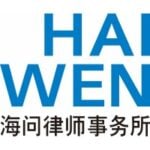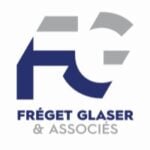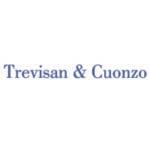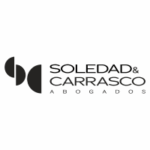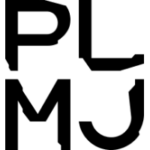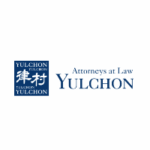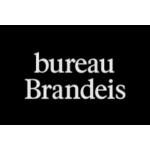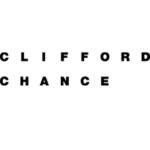-
What types of conduct and causes of action can be relied upon as the basis of a competition damages claim?
Pursuant to Section 33 and 33a of the German Act against Restraints of Competition (“ARC”), claims for damages, injunctive relief and removal can be based on any violation of
- Articles 101 or 102 of the Treaty on the Functioning of the European Union (“TFEU”),
- Part 1 of the ARC, including, in particular, the prohibition of cartels, the law against abuse of dominance and certain parts of the merger rules like those on gun jumping,
- Articles 5, 6 and 7 Regulation (EU) 2022/1925 (“DMA”), and
- orders of the German Competition Agency.
Moreover, according to the general provisions of German tort law (Section 823(2) of the German Civil Code), claims can also be based on violations of any other market laws that are specifically designed to (also) protect third parties and not only the public interest. Such laws include, for instance, Article 7 EUMR or parts of the newly implemented Data Act.
While damages claims are mostly follow-on claims that rely on an infringement decision of a competition authority (cf. Section 33(b) ARC), in recent years the number of standalone cases has increased significantly, specifically with a view to claims for injunctive relief but also with regard to damages cases, also during pending appeals of fining decisions. All in all, German law provides a comprehensive basis for the private enforcement of competition law, including adjacent areas such as the DMA or the Data Act making Germany an attractive venue for private enforcement.
-
What is required (e.g. in terms of procedural formalities and standard of pleading) in order to commence a competition damages claim?
In competition proceedings, actions must be brought before a competent Regional Court via a lawyer admitted to the German bar. Since 2022 any actions must be filed electronically via the German system for electronic communication of lawyers, courts and authorities (beA).
After receiving the statement of claim, the court will proceed to initiate the service of the statement of claim on the defendant, either in Germany or abroad. Depending on the location of the defendant and the number of defendants the service may take some time. However, service abroad can be accelerated by providing the court with the necessary translations of the German language statement of claim which would otherwise have to be commissioned by the court. However, pursuant to the German Code of Civil Procedure (“CCP”) only the court and not the claimant is competent to serve the statement of claim. In the alternative and where service may turn out to be difficult or overly time consuming, e.g. with Chinese defendants, the courts can also effect service via publication.
As regards the content, the statement of claim must provide exact information on the subject matter including the facts on which the specific claims are based. Depending on the case, this includes the allegedly unlawful conduct, how this conduct affected the claimant, and which specific damages or other detrimental effects were caused. In essence, the description within the statement of claim must allow the court to clearly identify the claim and its foundation to assess its overall conclusiveness.
However, the statement of claim does not need to be exhaustive or anticipate any possible counterarguments that may be put forward by the defendant during the proceedings. While it is therefore possible to strategically decide whether or not to produce certain information or a certain reasoning already in the statement of claim, the claimant may not unduly withhold relevant information and thereby delay the proceedings as the relevant piece of information may be disregarded as being belated. Thus, an action for damages typically contains all major factual and legal contentions including relevant pieces of evidence. In civil law cases like competition damages actions, the parties have to adduce the facts and the evidence, the court does not investigate the facts of a case brought before it beyond what was presented by the parties.
-
What remedies are available to claimants in competition damages claims?
Claims for damages require the defendant to put the claimant in the position it would have been in without the competition law offence (“counterfactual scenario”) (Sections 33a, 33 ARC). Outside of financial compensation for past and ongoing competition law violations, a claimant may also ask the court to grant injunctive relief to bring an ongoing violation to an end or rectify the consequences of a past violation (Section 33 ARC).
Where claims for performance are not suitable, declaratory judgments may be sought, e.g. because damages will only be incurred in the future or because the parties dispute the validity of a contract. As part of a declaratory judgement the court will, for instance, declare that a certain contract provision is void due to a violation of competition law, or that the defendant must compensate the claimant for future losses to be incurred due an unlawful behavior. However, pursuant to the CCP claims for performance – if feasible – take priority over claims for a declaratory judgment.
In addition, depending on the case, it is possible to combine different claims within one action. For instance, it is possible to employ a so-called action by stages (Section 254 CCP) to, on the first stage, ask the court to require the defendant to, for instance, disclose certain information pursuant to Section 33g ARC (see below) and then, on a second stage, use this information to specify a claim for damages.
In case of urgency, claims for injunctive relief and removal may also be enforced by way of interim court measures. Interim injunctive relief to protect a status quo is granted if the claimant’s interest in a preliminary ruling outweighs the defendant’s interest in continuing the conduct in question until the judgment in the main proceedings. On the contrary, performance orders such as injunctions ordering the defendant to supply the claimant are granted only under very strict conditions, in particular, if without the court’s interference the existence of the claimant is at risk. However, the legal requirements may differ depending on the approach of the competent court.
-
What is the measure of damages? To what extent is joint and several liability recognised in competition damages claims? Are there any exceptions (e.g. for leniency applicants)?
Overview
German courts award damages based on the principle of natural restitution (Section 249 German Civil Code). This in effect means that the situation caused by the competition law violation is compared with the hypothetical situation that would have existed but for the violation (“counterfactual scenario”).
The term restitution is interpreted broadly. First and foremost, it includes full monetary compensation of any damages incurred, including lost profit and interest (Section 252 German Civil Code). However, restitution within the meaning of German law may also cover claims for supply, access, e.g., to interfaces or data, admission to distribution systems, FRAND license offers, etc. Exemplary or punitive damages are not available.
Joint and several liability
If a violation of competition law such as a horizontal cartel is committed jointly by several undertakings, the participants to the violation are jointly and severally liable (cf. Section 33d(1) ARC and Section 426 German Civil Code). Accordingly, under German law, claimants that were the victim of a cartel are entitled to assert claims for the entirety of damages suffered against each of the cartel members irrespective of whether the specific cartel member is individually responsible for the damages or was the supplier of the claimant.
As far as members of a competition law violation that are jointly and severally liable compensate victims beyond their internal share of liability (cf. Section 33d(2) ARC, Section 426 German Civil Code), they are entitled to seek recourse from the remaining cartel members to the extent that each member is liable, which depends on the specificities of the individual violation (cf. under 18).
To secure these rights of recourse, the defendants are entitled to file third-party notices against the other members of the cartel, in particular, to stop their rights of recourse from becoming time-barred and make sure that the relevant findings of the court will also be binding on the other cartel members against which they may have a right of recourse. However, this purpose can also be achieved by limitation waiver agreements between the joint debtors that may, if an agreement is achievable, also determine the internal shares of liability to prevent future disputes in this regard.
Recipients of third-party notices are entitled to join proceedings and support either party, however, without becoming a defendant themselves.
There are certain exceptions to the concept of joint and several liability for immunity recipients and small and medium-sized enterprises (SMEs), where damages claims have arisen after 26 December 2016:
- In leniency cases, the immunity recipient’s liability is limited to the damage caused to its own direct or indirect customers or suppliers. Other claimants can only seek compensation from the immunity recipient if they have been unable to obtain full compensation from the other cartel members (cf. Section 33e ARC).
- SMEs are similarly privileged in that they are, subject to certain conditions, only liable to their direct or indirect customers or suppliers (cf. Section 33d ARC).
-
What are the relevant limitation periods for competition damages claims? How can they be suspended or interrupted?
Limitation periods
For claims originating after 26 December 2016 there are three relevant limitation periods. Claims are time-barred if one of the following limitation periods has expired:
First, the knowledge-dependent limitation period of 5 years (cf. Section 33h(1)(2) ARC), which starts at the end of the year in which the following criteria are all met:
- the claim exists,
- the infringement that gives rise to the claim has come to an end, and
- the claimant obtained knowledge, or should have obtained knowledge without gross negligence, of the circumstances giving rise to the claim, of the fact that these circumstances constitute an infringement under Section 33(1) ARC, and of the identity of the infringer.
In case of cartels, this period may start when competition authorities inform the public that a violation was identified and fines have been imposed against certain cartel members, e.g. in a press release (cf. Higher Regional Court of Dusseldorf (VI-U (Kart) 3/14)). However, the CJEU in Volvo and DAF (C-267/20) and in Heureka (C-605/21) argued that the press release of the European Commission usually does not contain sufficient information for the limitation period to start. Instead, the CJEU referred to the summary of the fining decision as published in the Official Journal. Against this background, the time when the limitation period starts may very well depend on the practice of the respective competition authority that has rendered the decision (e.g., type or detail of information given in a press release, official publication of fining decisions, etc.).
Second, a knowledge-independent limitation period of 10 years (cf. Section 33h(3) GWB), which starts when the claim exists and the infringement that gives rise to the claim has come to an end irrespective of the claimant’s actual or potential knowledge.
Third, a knowledge-independent limitation period of 30 years after the date on which the act causing the damage was committed irrespective of whether the infringement has come to an end and irrespective of any actual or potential knowledge of the victim (Section 33h(4) ARC).
For claims originating before 26 December 2016, the same five and ten year deadlines apply as far as those claims have not become time-barred pursuant to the old regime before 9 June 2017 (the old regime provided for limitation periods of 3 and 10 years and for the limitation period to start it was not necessary that the infringement had come to an end).
Suspensions
According to Section 33h(6) ARC limitation periods are suspended during the investigation of a possible violation by the European Commission or National Competition Authorities. The suspension only ends one year after the final and binding infringement decision of the respective authority.
The limitation periods are also suspended if the claimant and the defendant negotiate on a potential settlement, agree on a limitation waiver, or if the claimant initiates proceedings before national courts or an arbitration tribunal (cf. Sections 33h(6) ARC and 203, 204(1)(11) of the German Civil Code).
-
Which local courts and/or tribunals deal with competition damages claims?
Germany does not have standalone competition courts outside of the standard judiciary. Competition cases are therefore litigated before the civil courts. However, German law specifically designates those civil courts that are competent to hear competition cases, including DMA matters (Sections 87 et seq. ARC).
- First, regardless of the value in dispute, only the Regional Courts (Landgerichte) are competent to hear competition cases as courts of first instance.
- Second, due to the complexity of competition cases, almost all German Federal States chose to further concentrate the competence to hear competition cases and designated certain Regional Courts at which experienced competition chambers decide in competition matters.
Appeals on both facts and law are dealt with by the Higher Regional Courts (Oberlandesgerichte). Here again, the Federal States have the option to concentrate competition matters at certain Higher Regional Courts. At those Higher Regional Courts specialized competition senates reside over the appeals.
Finally, the German Federal Court of Justice’s (Bundesgerichtshof) competition senate hears appeals brought against decisions of the Higher Regional Courts on points of law.
-
How does the court determine whether it has jurisdiction over a competition damages claim?
The determination of the jurisdiction depends on where the parties to the proceedings are domiciled. Since competition cases are often multi-jurisdictional, different sources are relevant for the determination of the jurisdiction before German courts:
Brussels Ia Regulation
If the defendant is domiciled in an EU Member State, the jurisdiction is determined according to the Brussels Ia Regulation (Regulation (EU) No 1215/2012) and the respective CJEU case law. With regard to competition proceedings, three venues are relevant in practice:
- First, the courts at the defendant’s seat (or place of central administration or principal place of business) have jurisdiction to hear all cases against this defendant (Article 4(1) Brussels Ia Regulation). If the defendant is based in Germany, it is therefore possible to file claims at the respective local Regional Court that is competent to hear competition law or DMA matters.
- Second, pursuant to Article 7 no. 2 Brussels Ia Regulation the infringer may also be sued at the place where the harmful event occurred, covering both the place where the damage occurred and the place of the event giving rise to it, so that the defendant may be sued, at the option of the claimant, in the courts for either of those places.
- Third, where claims against different cartel members are enforced, the court where any of the defendants is domiciled will have jurisdiction with regard to all defendants (Article 8 no. 1 Brussels Ia Regulation).
International treaties and CCP
As far as a defendant is not domiciled within an EU Member State, the jurisdiction is determined based on either international treaties (e.g., the Lugano Treaty regarding Switzerland) or – if no such treaty exist with the relevant state where the defendant is domiciled – the CCP. The rules of the CCP are largely similar to the Brussels Ia Regulation, in particular, as regards Article 4(1) (cf. Section 17 CCP) and Article 7 no. 2 (cf. Section 32 CCP) Brussels Ia Regulation. However, there are certain differences, in particular, in the CCP there is no rule mirroring Article 8 no. 1 Brussels Ia Regulation (however, cf. Section 36 CCP).
Depending on whether the parties have agreed on choice of forum clauses, e.g., in a purchase agreement, and on how these clauses are drafted, disputes concerning the jurisdiction may arise (cf. CJEU, C-352/13 – CDC). Recently, a number of German Higher Regional Courts, in particular Schleswig and Frankfurt, dealt with choice of form clauses derogating damages claims after a violation of EU competition law to UK courts. The first instance courts predominantly and the Higher Regional Courts of Schleswig (20 U 2/24) and Frankfurt (11 U 68/23) held that such choice of forum clauses were invalid because the UK courts, after Brexit, no longer safeguard an adequate application of EU competition law and, especially, are not allowed to refer questions on the interpretation of EU competition law to the ECJ so that a uniform application of EU law was at risk. However, certain first instance courts decided in favor of the derogation to the UK courts. The Federal Court of Justice has not yet decided this question.
Similarly, defendants may contest the jurisdiction of national courts if arbitration clauses are relevant. Whether and to which extent an arbitration clause covers competition damages claims has not yet been clarified by the Federal Court of Justice but is subject to pending court cases. The result may depend on the circumstances, the place of jurisdiction, and the exact wording of the arbitration clause. In general, while cartel damages claims, according to certain first instance courts, may not by covered by standard arbitration clauses, which could even be invalid if damages claims caused by a violation of EU competition law shall be derogated to places of arbitration outside the EU like e.g. in Switzerland (ICC), this may be different where competition law violations are foreseeable, e.g. if they specifically concern certain provisions of a contract that is covered by the arbitration clause (cf. CJEU, C-595/17 – Apple) and if the place of arbitration is in a EU Member State.
-
How does the court determine what law will apply to the competition damages claim?
Applicable law
The determination of the applicable law in essence follows the effects principle.
First, the effects principle is enshrined in Articles 101 and 102 TFEU, which therefore apply directly in all EU Member States as far as a certain violation has any relevant effects within an EU Member State.
Second, since competition law matters are largely non-contractual, Regulation (EC) No. 864/2007 (Rome II Regulation) governs the application, in particular, of Sections 33 et seq. ARC. According to Article 6 of the Rome II Regulation the law applicable to a non-contractual obligation arising out of a restriction of competition shall be the law of the country where the market is, or is likely to be, affected.
In case the market is, or is likely to be, affected in more than one jurisdiction, a claimant who sues in the court of the defendant’s domicile may choose the law of that country, provided that the market in that EU Member State is or has been directly and substantially affected by the restriction of competition. Where the claimant sues more than one defendant in that court, the claimant can only choose the law of that court if the restriction of competition by each of the defendants also directly and substantially affects the market of that Member State.
It is important to note that the aforementioned rules regarding the applicable competition laws are mandatory and cannot be overridden through mutual agreement between the involved parties.
-
What is the applicable standard of proof?
Standard of proof
According to German procedural law, each party must present and prove the facts favorable to it, i.e. the claimant must prove the facts that give rise to the asserted claim while the defendant must prove the facts relevant to its defence, for instance, regarding a limitation period or the pass on of damages. Admissible evidence, in particular, includes visual inspection (Section 371 et seq. CCP), witness evidence (Section 373 et seq. CCP), expert evidence (Section 402 et seq. CCP), and documentary evidence (Section 415 et seq. CCP).
The overall standard of proof is determined by Sections 286 and 287 CCP:
- According to Section 286 CCP, facts are proven if the court is fully convinced (beyond a reasonable doubt) that a certain contention of a party is true.
- Section 287 CCP reduces the standard of proof as laid down in Section 286 CCP and allows the court – based on the proven facts before it – to estimate the existence of damages and the amount of the damages at its discretion and conviction, based on its evaluation of all circumstances. In recent years, Section 287 CCP has become one of the main factors in cartel damages proceedings, specifically since some Regional Courts have adopted a rather generous reading of their ability to estimate damages also without a court-appointed expert witness (cf. under 14).
However, both the German legislator and the German Federal Court of Justice have devised rules under which the burden of proof may be shifted or alleviated to the advantage of the claimant (e.g., prima facie evidence, factual and legal presumptions, etc.). Relevant statutory provisions are, in particular:
- Section 33a(2) sentence 1 ARC establishes a rebuttable presumption that a cartel results in damages.
- Section 33a(2) sentence 4 ARC establishes a rebuttable presumption that contracts falling within the factual, geographic and temporal scope of a cartel were affected by that cartel.
As regards the pass on defence please see under 13.
As a result of these rules, the successful enforcement of damages claims now largely depends on whether the claimant succeeds in proving the amount of damages or putting the court in a position to estimate the damages without even appointing a witness expert.
-
To what extent are local courts bound by the infringement decisions of (domestic or foreign) competition authorities?
Section 33b ARC determines that German courts are bound by the final and binding decisions of the Federal Cartel Office, the European Commission or other national competition authorities in EU Member States.
While courts are not bound by a decision of a competition authority outside the EU, such decisions may have indicative value and be considered persuasive in a trial before a German court. The same applies to decisions of EU competition authorities that are not yet binding or do not include a definite finding on the violation of competition law (e.g., commitment decisions pursuant to Article 9 Regulation 1/2003 and Section 32b ARC).
-
To what extent can a private damages action proceed while related public enforcement action is pending? Is there a procedure permitting enforcers to stay a private action while the public enforcement action is pending?
Claims for damages, injunctive relief or removal can also be brought standalone without prior public enforcement. The claimant, in such a case, must present and prove the facts that give rise to the asserted claims. In cartel cases, the claimant could also make use of binding decisions handed down against certain other cartel members while the defendant in parallel to the private proceedings is still appealing its fining decision.
According to Section 148 CCP, the courts are entitled to stay proceedings if the outcome of the dispute depends in whole or in part on the existence or non-existence of a legal relationship which is the subject of another pending dispute or which is to be determined by an administrative authority. However, there is no procedure permitting enforcers to stay a private action while a public enforcement action is ongoing.
-
What, if any, mechanisms are available to aggregate competition damages claims (e.g. class actions, assignment/claims vehicles, or consolidation of claims through case management)? What, if any, threshold criteria have to be met?
There are different options to bundle claims in Germany, although German law does not provide for class actions or similar collective redress.
- First, claims from several claimants can be filed jointly against one or several defendants as part of one action, provided the claims are interconnected (Section 59 et seq. CCP). However, in this case, the individual claims while connected via the proceedings remain independent.
- Second, under certain conditions, several claims can be assigned to an entity to assert the claims assigned to it, be it a special purpose vehicle that is set up and is funded for the sake of enforcement only, a legal entity enforcing claims of the undertaking it belongs to, or a legal entity that acquired claims of third parties.
The details and admissibility of option (ii) have been at the center of a heated debate and several judgements specifying the conditions of collective enforcement over the recent years. German law provides for strict rules applicable to the assignment of rights and funding with a view to the assertion of claims as well as the ownership and corporate governance of the respective vehicles. Violations of these principles may render the assignments void. Against this background, several courts in Germany have dismissed claims of special purpose vehicles for, in particular, lack of standing to sue (e.g. Regional Courts of Munich (37 O 18934/17), Hanover (18 O 50/16 and 18 O 34/17), Stuttgart (30 O 176/19) and Mainz (9 O 125/20). Yet, the recent development, specifically, the German Federal Court of Justice’s case law with a view to the bundling of claims outside of competition law (e.g., BGH, VIa ZR 418/21 – financialright, BGH KZR 73/21 – Die Freien Brauer), may lead to a more lenient approach in the future. In fact, the Higher Regional Court of Munich (29 U 1319/20) has recently overruled a decision of the Regional Court of Munich (37 O 18934/17) stating that the assignment of rights to a special purpose vehicle did not violate German law. In the same way, the Higher Regional Court of Stuttgart (2 U 30/22) overruled a decision of the Regional Court of Stuttgart (30 O 176/19) and held that the bundling did not violate German law. The decisions from the Higher Regional Court of Stuttgart and Munich are currently pending before the German Federal Court of Justice.
In addition, the CJEU’s ASG 2 decision on a referral from the Regional Court of Dortmund is also like to support a more lenient approach towards the bundling of claims via special purpose vehicles (CJEU, C-253/23 – ASG 2; Regional Court of Dortmund, 8 O 7/20 (Kart)).
Finally, registered trade associations or consumer organizations in Germany are entitled by statute to bring collective claims of consumers and small undertakings (less than ten employees or EUR 2 million turnover) for competition law infringements (cf. Directive (EU) 2020/1828). While this is an interesting development, it remains to be seen whether this new instrument will gain any traction considering the exclusion of undertakings beyond small entities.
-
Are there any defences (e.g. pass on) which are unique to competition damages cases? Which party bears the burden of proof?
The pass on defence is part of German law and was first accepted in a competition case by the German Federal Court of Justice in 2011 (BGH, KZR 75/10 – ORWI). Since 2016 the pass on defence is also explicitly addressed in Section 33c(2) ARC, which applies to all claims that have arisen after 26 December 2016.
Pursuant to Section 33c(1) ARC, the fact alone that goods or services purchased with an overcharge were sold on to a third party, shall not rule out the occurrence of damages. However, the defendant may argue and prove that in fact the damages incurred by the direct purchaser have been passed on to its customer.
Accordingly, if the claimant is a direct purchaser, the defendant bears the burden of proof to show that the claimant passed on the damages to its customers. There is no presumption in favor of the defendant.
However, pursuant to Section 33c (2) ARC it is presumed – in favor of an indirect purchaser as claimant – that the overcharge was passed on to this indirect purchaser, if
- a competition law infringement is established;
- the infringement has resulted in an overcharge for the direct customer, and
- the indirect customer has purchased goods or service that were affected by the infringement (either directly or as products made from or containing affected goods or services).
This presumption can be rebutted where it can be credibly demonstrated by the defendant that the overcharge was not, or not entirely passed on to the indirect purchaser (cf. Section 33c(3) ARC). A practical challenge for the pass on defense is that it regularly requires information, e.g. on cost and price, that is not readily available to the defendant but only to the direct purchaser.
-
Is expert evidence permitted in competition litigation, and, if so, how is it used? Is the expert appointed by the court or the parties and what duties do they owe?
Expert witness evidence is one of the types of evidence permitted in the CCP and therefore also in competition damages litigation. As a matter of practice, the use of expert witnesses is part of the standard procedure in competition damages litigation (unlike in claims for injunctive relief or removal).
First, it is common that both claimant and defendant rely on their chosen competition economists to substantiate their positions (e.g., on overcharge). However, the type and extent of the use of competition economists and the necessity to do so very much depends on the case, in particular, the complexity of the damages claims.
Second, while the parties’ economist reports allow the parties to substantiate their claims or counter the opponent’s claims, such reports are not considered expert witness evidence within the meaning of the CCP. Accordingly, the court cannot simply rely on one party’s economist to dismiss or award a claim, unless it is fully convincing while the other party’s opinion is not.
Third, if the court is of the opinion that it requires an expert witness, i.e. third-party expertise, the court will appoint such expert after consultation with the parties (cf. Section 402 et seq. CCP). The court-appointed expert must be unbiased and independent from the parties, performing its duties diligently and without being influenced by party-appointed experts.
The appointed expert witness will then typically prepare its report and findings (e.g., on overcharge) in line with the CCP. Both parties can challenge the expert’s findings through submissions or during testimony. The court will ultimately evaluate the evidence and decide whether or not it considers the appointed expert witness statement sufficient to rule on the case.
Please note that the development regarding the engagement of expert witnesses has been very dynamic in recent years. While expert witnesses are still part of the standard procedure in most damages claims, there are Regional Courts that have shown the willingness to estimate or reject damages (Section 287 CCP) without the prior engagement of a court-appointed expert witness – depending on the case at hand (e.g., Regional Courts of Berlin (61 O 2/23), Dortmund (8 O 115/14 (Kart)) and Celle (13 U 120/16 (Kart)). In addition, a heated discussion concerns the question on how to best use an expert witness from the perspective of the court (e.g., time of appointment, support during the proceedings, hot-tubbing, etc.). The background to this discussion is that appointing an expert witness late in the proceedings and the lack of interaction between the court and the expert is considered inefficient.
Finally, while expert witnesses are part of the standard procedure in competition damages claims, claims for injunctive relief or removal based on competition law or, for instance, the DMA rarely involve expert witnesses as German courts are open to assess competition law arguments independently.
-
Describe the trial process. Who is the decision-maker at trial? How is evidence dealt with? Is it written or oral, and what are the rules on cross-examination?
Overall trial process
The competition litigation trial process is mainly conducted in writing, i.e. the exchange of briefs (cf. Section 276 CCP). After the statement of claim has been served on the defendants, the defendants submit their statement of defense which then is followed by another round of briefs from both sides (reply and rejoinder). Usually, several months lie between each of these briefs. Depending on the case, the court will then conduct an oral hearing, which may focus on the court’s preliminary views, evidence submitted by the parties, legal questions, etc.
In addition to documentary evidence submitted as part of the briefs (and potentially witness testimony), the court will to the extent necessary appoint an expert witness – depending on the case, before or after the first oral hearing – who prepares the expert witness report.
Depending on the case, the court may then conduct a further oral hearing at which, in particular, the parties and the court have the option to engage with the expert witness and the findings in the expert’s report.
If the court believes that based on the pleadings and evidence before it is ready to render its decision it will set a separate date (Verkündungstermin). German courts rarely hand down their decision at the end of the oral hearing.
No US-style cross-examination
There is no US-style cross-examination of (expert) witnesses in German proceedings. In general, the court conducts the questioning of any witnesses. However, the parties to the proceedings will usually have the opportunity to ask additional questions.
-
How long does it typically take from commencing proceedings to get to trial? Is there an appeal process? How many levels of appeal are possible?
There are many factors that impact the duration of competition damages litigation, chief among which are the number of defendants, number of affected purchases, the complexity of the cartel, relevance of expert witnesses, workload of the court, etc. However, for competition damages litigation the first instance proceedings rarely take less than two years.
Please note, however, that the claimant may – to a certain extent – influence the duration of the proceedings as a result of, for instance, the scope of its claims, the number of defendants, the selection of the defendants with a view to their seats (group liability pursuant to CJEU, C-882/19 – Sumal and CJEU, C-724/17 – Skanska), the quality of data, etc. In addition, claims for injunctive relief, e.g., based on a competition law or DMA violation, usually take substantially less time (about 1 year).
There is an appeals process available, with two additional levels. Any case will start before a Regional Court (Landgericht) as the first instance court. The judgment by the Regional Court may be appealed to the Higher Regional Court (Oberlandesgericht), which reviews the case on points of law and fact. Decisions by the Higher Regional Court may be appealed to the German Federal Court of Justice (Bundesgerichtshof), which reviews the case only on points of law.
-
Do leniency recipients receive any benefit in the damages litigation context?
Yes, immunity recipients benefit from a privileged legal position in damages litigation, where claims have arisen later than 26 December 2016 (cf. Section 33e ARC). The most relevant privileges are:
- The immunity recipient’s liability is limited to the damages caused to its own direct or indirect customers or suppliers.
- Other claimants can only seek compensation from the immunity recipient if they have been unable to obtain full compensation from the other cartel members.
- The other infringers may claim compensation from the immunity recipient under Section 33d(2) ARC only up to the amount of harm the immunity recipient caused to its own direct or indirect purchasers or providers.
-
How does the court approach the assessment of loss in competition damages cases? Are “umbrella effects” recognised? Is any particular economic methodology favoured by the court?
German courts award damages based on the principle of natural restitution (Section 249 German Civil Code). This in effect means that the situation (e.g., the price-level, volume effects, etc.) caused by the competition law violation is compared with the hypothetical situation that would have existed but for the violation (“counterfactual scenario”). The delta between the actual situation and the counterfactual including any lost profits represents the loss.
With a view to the calculation of the damages, the law does not prescribe a certain method for quantification. A standard option would be a comparison-over-time approach, based on which the court can then estimate the likely overcharge/damages (cf. Section 33a(3) ARC, Section 287 CCP).
Umbrella effects are recognized by German courts, as confirmed by the German Federal Court of Justice in 2018 (cf. BGH, KZR 56/16 – Grey Cement II). The courts, however, stipulated that umbrella effects cannot be presumed and that there is no prima facie evidence in this regard, so that umbrella effects must be established through a comprehensive and meticulous analysis in each individual case. Relevant factors to assess umbrella effects are, inter alia, the cartel’s market coverage, the duration of the infringement, the homogeneity of the products, buyer power, etc.
-
How is interest calculated in competition damages cases?
Interest is available from the time that the harm occurred until the date of the judgment, followed by statutory interest applied to the awarded amount until full payment is made. Depending on the duration of the case, interest can be a substantial part of the awarded amount.
Interest is calculated in accordance with Section 33a(4) ARC, and Sections 288 and 289 of the German Civil Code. For damages that occurred on or after 1 July 2005, the statutory interest rate is five percentage points above the base interest rate per annum, as published by the German Central Bank based on the rates of the European Central Bank (cf. Section 247 German Civil Code).
-
Can a defendant seek contribution or indemnity from other defendants? On what basis is liability allocated between defendants?
A defendant can seek contribution or indemnity from other defendants in line with general principles of civil law on joint and several liability and internal redress (cf. Section 33d ARC and Sections 830, 840, 426 German Civil Code). According to these provisions, the parties are jointly and severally liable vis-à-vis the victim if they jointly committed the competition law violation that caused harm to the claimant.
Internally, the liability in relation to one another depends on the circumstances of the case, in particular, on the extent to which the individual cartelists caused the harm (e.g., the degree and extent of involvement in the unlawful activity, the level of responsibility regarding the unlawful activity, the profits and other advantages gained from the cartel, shares of supply, etc.).Thus, the actual share may deviate substantially from a per capita allocation (regarding the exceptions for SME cf. Section 33d(3) and for leniency recipients cf. 33e(3) ARC).
-
In what circumstances, if any, can a competition damages claim be disposed of (in whole or in part) without a full trial?
German law does not provide for an equivalent to the US strike-out orders or summary judgment in order to challenge a claim at a very early stage. However, a court may dispose of a claim at any time if there are, for instance, procedural or substantive issues that cannot be overcome (such as lack of jurisdiction, the claims being time-barred, lack of standing to sue of a special purpose vehicle, etc.). In such a case, the court will dismiss the action without assessment on the merits.
Finally, of course, a full trial can be avoided by a settlement agreement. Courts themselves may suggest or support the settlement of a case (cf. Section 278(1) CCP).
-
What, if any, mechanism is available for the collective settlement of competition damages claims? Can such settlements include parties outside of the jurisdiction?
There is no specific mechanism available for the collective settlement of competition damages claims (as there is also no US-style class action).
While it is possible to jointly settle with regard to all bundled claims and in relation to all defendants, such a joint settlement is unlikely outside of very clear-cut-situations, for instance, where a court has given a very clear indication on how a verdict may look like. Far more common are multiple separate settlements agreed individually between claimants and defendants in relation to their respective share of supply (cf. Section 33f ARC).
The terms of a settlement, and even the settlement as such, are usually subject to strict confidentiality.
-
What are the rules for disclosure of documents (including documents from the competition authority file or from other third parties)? Are there any exceptions (e.g. on grounds of privilege or confidentiality, or in respect of leniency or settlement materials)?
Access to files/fining decision
To get hold of information required for damages claims from the authorities, the claimant may request access to file. Vis-à-vis the Federal Cartel Office, the claimant may, in particular, request access to the fining decision pursuant to Sections 406e, 475 German Code of Criminal Procedure (cf. also Section 56(5) ARC in administrative proceedings). Vis-a-vis the European Commission, the claimant may rely on the Transparency Regulation (EG) 1049/2001 to get hold of certain documents. Please note that pursuant to Section 89b(5) ARC, access to the fining decision can also be sought from the cartel members via an interim injunction under simplified circumstances.
In addition, during damages claims, pursuant to Section 89c ARC the court may request, upon application by a party, that the competition authority (e.g., the Federal Cartel Office or the European Commission) provide documents and items from its files if the applicant credibly demonstrates that it has a claim for damages against another party pursuant to pursuant to Section 33a(1) ARC and the information cannot be obtained from another party or third party with reasonable effort.
However, several limitations apply (e.g., regarding leniency statements, internal notes, etc.) which explains the lack of practical importance so far.
Document production
Evidence (except for opinions by court-appointed experts) must be introduced by the parties. It is the parties’ responsibility to acquire and produce, for instance, relevant documents like decisions of the Federal Cartel Office or the European Commission.
The German CCP and the ARC do not foresee a US-style discovery procedure. While the courts may require the parties to produce certain (specifically identified) documents, they are reluctant to do so (cf. 142 CCP). In practice, the relevance of Section 142 CCP is very limited.
However, pursuant to Section 33g ARC the claimant now has the right to have certain evidence surrendered and information provided in order to assert a claim for damages under Section 33a(1) ARC provided that the claimant has credibly demonstrated that such a claim exists. The same applies for evidence that is necessary for the defendant’s defence against a claim under Section 33a(1) ARC.
In order to rely on Section 33g ARC, several conditions must be met:
- The evidence must exist, be appropriate to serve as necessary proof for the damages claim or a counterargument, and be relevant to the claim;
- The requested evidence or information must be specified with reasonable precision based on the available facts, and should be within the possession of the other party.
- The party must convincingly demonstrate to the court’s satisfaction that a valid damage claim exists.
The disclosure could be excluded or rejected (Section 33g(3)(4) (5) ARC):
- If and to the extent that the request for information is deemed disproportionate, meaning it exceeds reasonable bounds.
- If and to the extent that the requested documentation includes details about leniency statements or settlement submissions.
- If and to the extent that the documents pertain to proceedings conducted by the competition authority, until such proceedings are concluded regarding all parties involved.
In order to protect business secrets the court may appoint an expert to assess the necessary scope of the protection required (Section 89b(7) sentence 2 ARC).
Section 33g ARC is certainly of help to the parties, specifically, the claimant. While the claimant may rely on access to file (see below), in particular, a copy of the fining decision to substantiate a claim, it may need Section 33g ARC to support the quantification of damages.
However, the courts have yet to develop a standardized approach (e.g., regarding its scope, regarding the protection of business secrets etc.). Until now, only a limited number of decisions exist where the applicant was granted the right to information under Section 33g ARC (see, e.g., Regional Court of Hanover, 13 O 265/20).
-
What procedures, if any, are available to protect confidential or proprietary information disclosed during the court process?
Confidentiality
German law allows for measures to protect confidential information in court proceedings (e.g., Section 89b(7) ARC allows the court to take the measures required to protect trade and business secrets and other confidential information that is produced as a result of a disclosure request pursuant to Section 33g ARC).
In general, there is no established full-blown US-style approach to the protection of confidential information within German court proceedings (e.g., in camera proceedings). However, pursuant to the newly introduced Section 273a CCP he protection of confidential information in line with the Act on the Protection of Trade Secrets is possible.
-
Can litigation costs (e.g. legal, expert and court fees) be recovered from the other party? If so, how are costs calculated, and are there any circumstances in which costs recovery can be limited?
In principle, the prevailing party can recover the litigation costs from the other party after the proceedings (cf. Section 91(1) CCP). This includes the statutory court fees (including costs for expert witnesses) and the attorney’s fees. If no party prevails in full, the court will split the costs proportionately.
However, the costs that are recoverable regarding attorney’s fees are limited by the German Act on the Remuneration of Lawyers (Rechtsanwaltsvergütungsgesetz). In practice, this means that – depending on the value in dispute and the actual costs – only a part of the actual costs can be recovered.
In settlement agreements, the parties usually include an arrangement on the distribution of the litigation costs.
-
Are third parties permitted to fund competition litigation? If so, are there any restrictions on this, and can third party funders be made liable for the other party’s costs? Are lawyers permitted to act on a contingency or conditional fee basis?
The external funding of private competition litigation is permissible in Germany.
In general, the parties are free to agree on the extent to which the funder covers the litigation expenses. Accordingly, depending on the contractual agreement between the funder and the claimant, the funder may not only cover the expenses of the claimant, but also the expenses of the opponent, to the extent that such expenses are recoverable under the German Act on the Remuneration of Lawyers (Rechtsanwaltsvergütungsgesetz).
Lawyers are generally not permitted to act on a contingency/conditional fee basis. However, in recent years, the legislator has introduced certain, very limited exceptions to this rule (e.g., with regard to low value cases or out-of-court debt collection). In practice, most lawyers work on hourly rates.
-
What, in your opinion, are the main obstacles to litigating competition damages claims?
There are no substantial obstacles to litigating competition damages claims or competition claims in general in Germany. In fact, over the last years, a multitude of decisions by courts up to the Federal Court of Justice have substantially increased legal certainty allowing parties to better assess their chances in court.
While litigating competition damages claims necessarily entails certain costs and time (e.g., retaining lawyers, retaining an expert witness etc.), compared to the US or the UK, litigation in Germany is rather inexpensive. In particular, considering options to fund damages claims by third parties. This is even more true when it comes to claims for injunctive relief, in which there are usually no expert witnesses involved, and which take considerably less time compared to damages claims.
In addition, the claimant has the option to manage time and costs by tailoring the claims and, for instance, focusing on the (financially) relevant parts, selecting certain local defendants (group liability pursuant to CJEU, C-882/19 – Sumal and CJEU, C-724/17 – Skanska), etc.
-
What, in your opinion, are likely to be the most significant developments affecting competition litigation in the next five years?
Overview
In recent years, private competition litigation has become a major factor in Germany. This not only includes multi-million Euros damages claims, mostly follow-on (e.g., from the trucks cartel, sugar cartel, railway tracks cartel, etc.), but also a significant share of standalone litigation concerning violations of the cartel prohibition (Section 1 ARC, Article 101 TFEU), the abuse of dominance (Sections 19, 20 ARC and Article 102 TFEU) and – very recently – the DMA.
Specialized courts with experienced judges and moderate costs as well as the fact that claims for injunctive relief usually do not require costly expert witnesses make Germany an attractive venue for competition litigation.
Legislator
The German legislator has been supporting this development. Following the implementation of the EU Damages Directive (2014/104/EU) in 2017 via the 9th Amendment to the ARC, the legislator has further fine-tuned the rules on private competition law enforcement.
The 10th Amendment to the ARC in 2021 further facilitated private damages claims by introducing, in particular, a rebuttable presumption that, under certain conditions, products or services are affected by a cartel and a clarification on the intertemporal application of the rules on the disclosure of information (Section 33g ARC).
Only recently, the legislator has further expanded the scope of the ARC to also cover violations of the DMA (11th Amendment to the ARC 2023). The same rules that facilitate the enforcement of claims for damages, injunctive relief and removal with a view to competition law violations now also apply to violations of the DMA.
Noteworthy case-law
With a view to damages claims, German courts up to the German Federal Court of Justice continue to be heavily involved in the aftermath of major cartels like the trucks cartel, sugar cartel, railway tracks cartel, etc., but also with the consequences of vertical competition law violations or the abuse of dominance (e.g., BGH, KZR 46/21 – LKW-Kartell III, BGH, KZR 98/20 – LKW-Kartell IV, BGH, KZR 60/23 – LKW Kartell V, BGH, KZR 71/23 – LKA Kartell VI, BGH, KZR 39/21 – Matratzenpreisbrecher, Higher Regional Court of Düsseldorf (VI U 1/23 (Kart)). The large number of decisions rendered by the German Federal Court of Justice together with the case law of the CJEU in recent years have significantly improved legal certainty.
The most relevant ongoing disputes concern
- The conditions under which courts may estimate damages without appointing expert witnesses (e.g., BGH, KZR 98/20 – LKW-Kartell IV; Regional Courts of Berlin (61 O 2/23), Dortmund (8 O 115/14 (Kart)) and Celle (13 U 120/16 (Kart)).
- The conditions under which cartel victims may assign their damages claims to third parties (specifically, special purpose vehicles) for joint enforcement of such claims (e.g., Higher Regional Court of Munich (29 U 1319/20) and Higher Regional Court of Stuttgart (2 U 30/22); BGH, VIa ZR 418/21 – financialright and BGH, KZR 73/21 – Die Freien Brauer; CJEU, C-253/23 – ASG 2; Regional Court of Dortmund, 8 O 7/20 (Kart)).
- The relevance and permissibility of choice of forum clauses in competition law litigation (e.g., Higher Regional Courts of Schleswig (20 U 2/24) and Higher Regional Court of Frankfurt (11 U 68/23)). Also arbitration clauses will continue to be scrutinized in competition litigation.
However, also beyond damages claims German courts have been at the forefront of important competition litigation. For instance:
- The Regional Court of Dortmund (8 O 1/23 Kart) and the Higher Regional Court of Dusseldorf (VI-U (Kart) 2/23) granted injunctions against FIFA and DFB regarding competition law violations through the so-called FIFA Football Agent Regulations.
- The Regional Court of Mainz (9 O 129/21) and the German Federal Court of Justice (KZR 71/21) have submitted questions to the CJEU regarding the interpretation of Articles 101 and 102 TFEU concerning the interrelation of sports and competition law. The Advocate General already published his opinions in early May (C-428/23 and C-209/23).
- The Regional Courts of Munich, Mannheim and Dusseldorf are heavily involved in the SEP/FRAND litigation (e.g., Regional Court of Munich (21 O 1890/22), Higher Regional Court of Karlsruhe, (6 U 204/22)).
- The Regional Court (16 O 73/21 Kart) and Higher Regional Court (Kammergericht) (U 4/21 Kart) of Berlin ruled on cases concerning so-called tipping in the platform economy.
Finally, as a result of the 11th Amendment to the ARC in 2023 and the extension of the private enforcement regime to violations of the DMA, German courts are among the first in the EU to rule on the private enforcement of the DMA against gatekeepers such as Google, Apple, Meta and others.
Germany: Competition Litigation
This country-specific Q&A provides an overview of Competition Litigation laws and regulations applicable in Germany.
-
What types of conduct and causes of action can be relied upon as the basis of a competition damages claim?
-
What is required (e.g. in terms of procedural formalities and standard of pleading) in order to commence a competition damages claim?
-
What remedies are available to claimants in competition damages claims?
-
What is the measure of damages? To what extent is joint and several liability recognised in competition damages claims? Are there any exceptions (e.g. for leniency applicants)?
-
What are the relevant limitation periods for competition damages claims? How can they be suspended or interrupted?
-
Which local courts and/or tribunals deal with competition damages claims?
-
How does the court determine whether it has jurisdiction over a competition damages claim?
-
How does the court determine what law will apply to the competition damages claim?
-
What is the applicable standard of proof?
-
To what extent are local courts bound by the infringement decisions of (domestic or foreign) competition authorities?
-
To what extent can a private damages action proceed while related public enforcement action is pending? Is there a procedure permitting enforcers to stay a private action while the public enforcement action is pending?
-
What, if any, mechanisms are available to aggregate competition damages claims (e.g. class actions, assignment/claims vehicles, or consolidation of claims through case management)? What, if any, threshold criteria have to be met?
-
Are there any defences (e.g. pass on) which are unique to competition damages cases? Which party bears the burden of proof?
-
Is expert evidence permitted in competition litigation, and, if so, how is it used? Is the expert appointed by the court or the parties and what duties do they owe?
-
Describe the trial process. Who is the decision-maker at trial? How is evidence dealt with? Is it written or oral, and what are the rules on cross-examination?
-
How long does it typically take from commencing proceedings to get to trial? Is there an appeal process? How many levels of appeal are possible?
-
Do leniency recipients receive any benefit in the damages litigation context?
-
How does the court approach the assessment of loss in competition damages cases? Are “umbrella effects” recognised? Is any particular economic methodology favoured by the court?
-
How is interest calculated in competition damages cases?
-
Can a defendant seek contribution or indemnity from other defendants? On what basis is liability allocated between defendants?
-
In what circumstances, if any, can a competition damages claim be disposed of (in whole or in part) without a full trial?
-
What, if any, mechanism is available for the collective settlement of competition damages claims? Can such settlements include parties outside of the jurisdiction?
-
What are the rules for disclosure of documents (including documents from the competition authority file or from other third parties)? Are there any exceptions (e.g. on grounds of privilege or confidentiality, or in respect of leniency or settlement materials)?
-
What procedures, if any, are available to protect confidential or proprietary information disclosed during the court process?
-
Can litigation costs (e.g. legal, expert and court fees) be recovered from the other party? If so, how are costs calculated, and are there any circumstances in which costs recovery can be limited?
-
Are third parties permitted to fund competition litigation? If so, are there any restrictions on this, and can third party funders be made liable for the other party’s costs? Are lawyers permitted to act on a contingency or conditional fee basis?
-
What, in your opinion, are the main obstacles to litigating competition damages claims?
-
What, in your opinion, are likely to be the most significant developments affecting competition litigation in the next five years?



